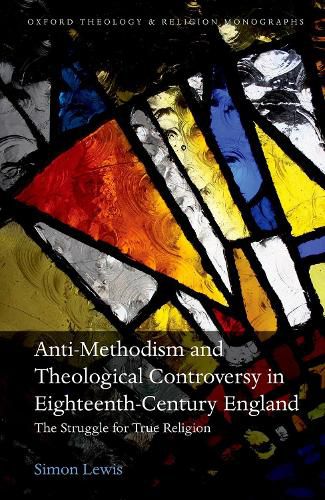Readings Newsletter
Become a Readings Member to make your shopping experience even easier.
Sign in or sign up for free!
You’re not far away from qualifying for FREE standard shipping within Australia
You’ve qualified for FREE standard shipping within Australia
The cart is loading…






John Wesley and George Whitefield are remembered as founders of Methodism, one of the most influential movements in the history of modern Christianity. Characterized by open-air and itinerant preaching, eighteenth-century Methodism was a divisive phenomenon, which attracted a torrent of printed opposition, especially from Anglican clergymen. Yet, most of these opponents have been virtually forgotten. Anti-Methodism and Theological Controversy in Eighteenth-Century England is the first large-scale examination of the theological ideas of early anti-Methodist authors. By illuminating a very different perspective on Methodism, Simon Lewis provides a fundamental reappraisal of the eighteenth-century Church of England and its doctrinal priorities. For anti-Methodist authors, attacking Wesley and Whitefield was part of a wider defence of ‘true religion’, which demonstrates the theological vitality of the much-derided Georgian Church. This book, therefore, places Methodism firmly in its contemporary theological context, as part of the Church of England’s continuing struggle to define itself theologically.
$9.00 standard shipping within Australia
FREE standard shipping within Australia for orders over $100.00
Express & International shipping calculated at checkout
John Wesley and George Whitefield are remembered as founders of Methodism, one of the most influential movements in the history of modern Christianity. Characterized by open-air and itinerant preaching, eighteenth-century Methodism was a divisive phenomenon, which attracted a torrent of printed opposition, especially from Anglican clergymen. Yet, most of these opponents have been virtually forgotten. Anti-Methodism and Theological Controversy in Eighteenth-Century England is the first large-scale examination of the theological ideas of early anti-Methodist authors. By illuminating a very different perspective on Methodism, Simon Lewis provides a fundamental reappraisal of the eighteenth-century Church of England and its doctrinal priorities. For anti-Methodist authors, attacking Wesley and Whitefield was part of a wider defence of ‘true religion’, which demonstrates the theological vitality of the much-derided Georgian Church. This book, therefore, places Methodism firmly in its contemporary theological context, as part of the Church of England’s continuing struggle to define itself theologically.